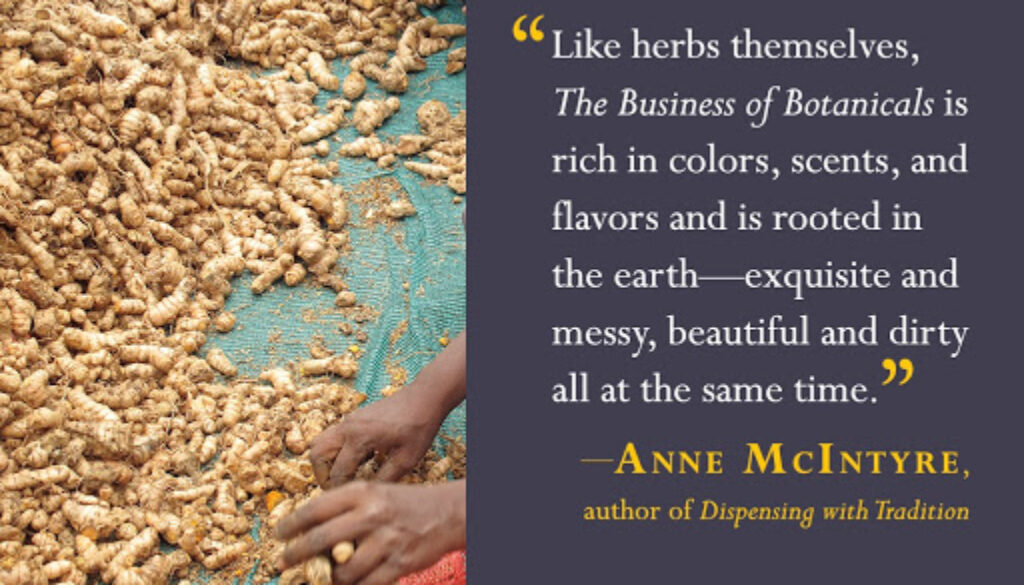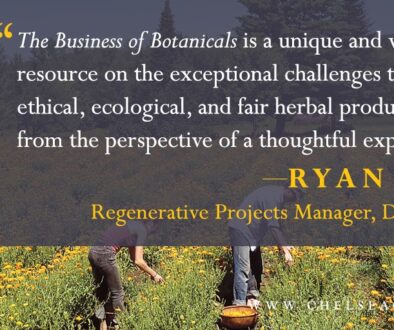Holistic Herbalism
Anne McIntyre’s comments about The Business of Botanicals are my favorite – because what she describes is exactly what I set out to do in writing this book.
“Like herbs themselves, The Business of Botanicals is rich in colors, scents, and flavors and is rooted in the earth—exquisite and messy, beautiful and dirty all at the same time. Armbrecht takes us on a journey to many corners of the world to visit plant growers and collectors, as well as teachers and conservationists. In the true spirit of inquiry, her journey comes back to the heart, the organ of true perception…. If the herbalism we practice is holistic because it considers the whole picture of a patient before formulating a prescription, and the whole plant we use is clearly more than the sum of its constituent parts, so too this book offers a truly holistic perspective. As Armbrecht says, her journey became the medicine these plants offer. . . . That is their promise.”
—Anne McIntyre, author of Dispensing with Tradition and The Ayurveda Bible
Healing as Wholeness
The promise of herbal medicine is that it is better for us and for the earth. Is that really the case? The end product can only ever be as healthy as the health of each step of the journey. What do you know about the health of the plants in the products you purchase? About the lives of the men and women harvesting and growing and handling the herbs? What about the ecosystem? The water? The health of the soil?
In Hedangna, a Yamphu village in northeastern Nepal, the priests and shamans can see double, they can see the living and the non-living, the ancestors on whom their lives in the present depend. Not seeing those ancestors, not seeing what it is that sustains us, these healers say, makes us selfish.
In the same way, not seeing the ways our choices impact the lives and places on the far side of the supply chain makes us selfish. We think of our needs: how will this product help me be well? Not our responsibilities: how, by purchasing this product rather than that one can I use my resources to create more wellness in the world?
Doing this requires seeing behind the veil of an economic system that depends on our not seeing.
It is up to each of us to lift that veil, to see beyond what the market wants us to see. To ask and to ask again. it means we might buy less, perhaps, to minimize our footprint. But we can also be more discerning in what we do buy, so that, perhaps, we can make more of a difference. Through that discernment, we engage. And, in my experience, through that engagement we may find the deeper healing we didn’t even know we were seeking.

